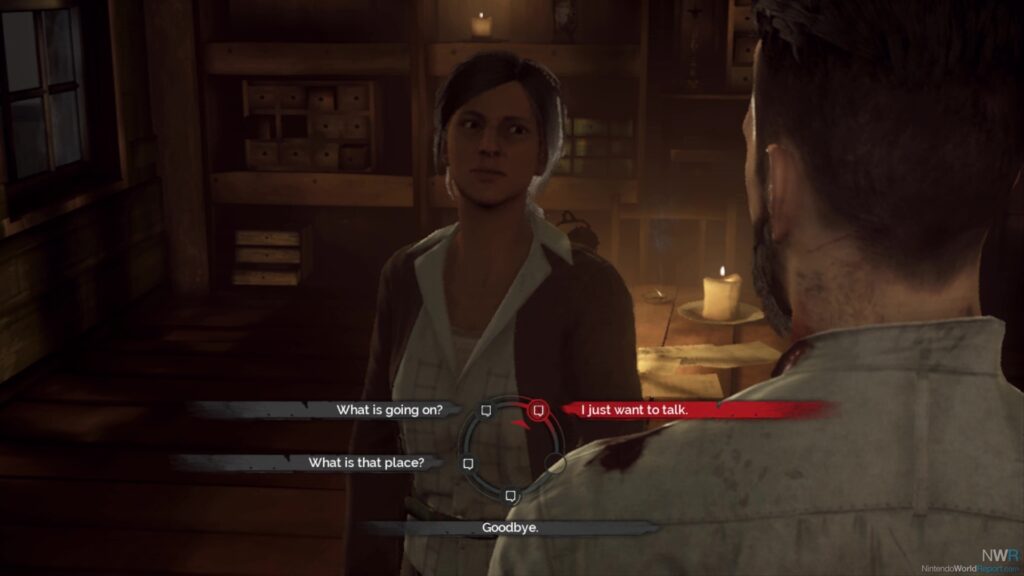Vampyr Review: An altruistic doctor turned vampire during the Spanish flu sounds epic—but does this game live up to its own potential?
Released in June 2018 by Dontnod Entertainment — the studio behind Life is Strange — Vampyr is a third-person action RPG set in 1918 London, during the Spanish flu pandemic. You play as Dr. Jonathan Reid, a brilliant surgeon turned reluctant vampire, torn between his Hippocratic oath and his newfound thirst for blood.
At launch, Vampyr seemed quite revolutionary due to its unique blend of moral choice systems, atmospheric world-building, and narrative ambition. In 2025, it still carries that originality, because we see very few games based on vampires. But unfortunately, not all the blood in this game flows smoothly. After playing through around 40% of the story— we lost the will to continue. So here’s our Vampyr review, based on real experience, not blind nostalgia.
And, no, this Vampyr review won’t tell you it’s a bad game. In fact, it’s an intriguing, slow-burning experience that almost delivers something special. But despite its clever premise and immersive setting, it has some flaws, which you should know about, if you are considering buying the game.
Vampyr Combat System: Less Bite, More Button Mashing
Let’s start with the meat of the game — or, in this case, the neck. The Vampyr combat system feels like it was designed by someone who wanted to make Bloodborne on a budget, but accidentally left the “fun” toggle off.
You’re handed a cool arsenal: claws, shadow strikes, teleport dodges, blood spears — sounds great, right? Sadly, the enemy variety doesn’t keep up. By the time you are done with 40% of the game, you will mostly be circling the same tired streets, fighting the same thugs and beasts. Even the supernatural enemies, which should feel terrifying or majestic, become glorified health bars with legs.
The Vampyr combat system isn’t broken — it’s just repetitive. Dodge, hit, drain blood, use ability, repeat. There’s no tactical evolution, no meaningful upgrades that radically change your playstyle, and no incentive to try different approaches once you’ve found your rhythm. Instead of feeling like a graceful predator, you might feel like a frustrated dentist doing root canals on angry Londoners. It’s one of the key flaws that is important to mention in our Vampyr review, and it holds the whole experience back.

Vampyr Morality System: Now This Had Potential
If Vampyr shines anywhere, it’s in its morality system. which we see rarely in modern RPGs — a complex web of choices and consequences that influence both story and gameplay. Every citizen in the game is part of a hand-crafted social network. You can learn about them, cure them, help them… or drain them dry for massive health XP gains.
This mechanic brilliantly ties into the game’s core conflict: to heal or to feed. Kill too many, and you’ll gain strength but lose the district to chaos. Show restraint, and the city thrives — but you might remain underpowered in combat. It’s a thoughtful system that genuinely makes us pause before killing a character.
Unfortunately, over time, the Vampyr morality system wears thin. After a point, the novelty fades. Many characters seem similar. Dialogue trees stretch on. The “moral weight” of your decisions loses punch when you’re forced to revisit the same conversations in the same streets again and again. The drama of deciding someone’s fate loses power when they all start to feel like slightly different versions of the same NPC.
The Streets of London: Beautifully Bleak, Yet Weirdly Empty
Vampyr nails its atmosphere. The dark alleys, gas lamps, creeping fog, eerie whispers — it’s pure Gothic melancholy. For the first few hours, the setting feels something new and intriguing in itself. But soon, we get tired. No fast travel, lots of backtracking, and minimal environmental variety make the city feel more like a maze than a living breathing world.
The worst part? You start recognizing every single corner. Not because you’re learning the map, but because you’ve walked that exact same route ten times already — and probably fought the same enemy squad each time too. It begins to feel less like you’re uncovering a mystery and more like you’re doing vampire-themed deliveries across three neighborhoods. A big disappointment, and a common sentiment in this Vampyr review.
Vampyr Story: Lost in Its Own Fog
The story in Vampyr had massive potential. With intriguing mysteries, we had the main character — Dr. Reid — who was genuinely likable despite his bloodthirsty curse. But somewhere along the line, that promising narrative begins to wander.
Instead of building momentum, the plot tends to circle back on itself. The investigation gets bogged down, and important revelations are spaced out too far apart. You expect a slow burn, but how slow? That’s the question! When the story takes too much of time getting to the point, or introducing a worthy villain, it also loses the sense of urgency and players beign to find it boring!
Where Does Vampyr Stand Among Games Based on Vampires?

Among modern games based on vampires, Vampyr is still unique. It dares to combine social simulation with action RPG mechanics and moral dilemmas. That’s more than most fang-bearing games attempt. But where Vampyr falls short in sustaining player engagement.
If games based on vampires are your thing, Vampyr is still worth checking out. Just know going in: it’s not a power fantasy — it’s more of a brooding, melancholic experience with moments of brilliance buried under repetition.
Should You Sink Your Teeth into Vampyr in 2025?
If you’re looking for a slow-burn vampire RPG with moral complexity, a strong atmosphere, and a genuinely creative central conflict, Vampyr is still a worthy experience — for a time. You can grab it on a sale. The game is not too long thankfully and can be completed within 15-20 hours.
Its strengths lie in the setup: the story, the lore, the questions it forces you to ask. But once the thrill of your fangs fade, you’re left with a game that can’t quite sustain its weight. This Vampyr review aims to show both sides of that coin.
Final Verdict
Vampyr Review – Score: 6/10
Play it if you’re in the mood for something thoughtful, tragic, and atmospheric. But don’t be surprised if you eventually lose the desire to complete it. This Vampyr review was written by us after we walked the streets, bit the necks, and still came out thirsty — but not for more gameplay.
Looking for other games based on vampires? If you want to enjoy a genuinely good vampire game, consider playing Blood and Wine, a DLC expansion to Witcher 3. Despite being just a DLC, it has one of the best vampire stories ever.
Read our list of dark scary games that aren’t really horror, if you want to experience games similar to Vampyr.
